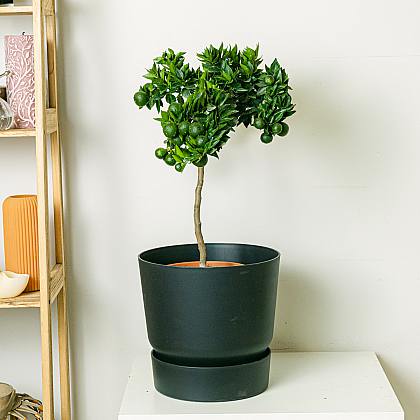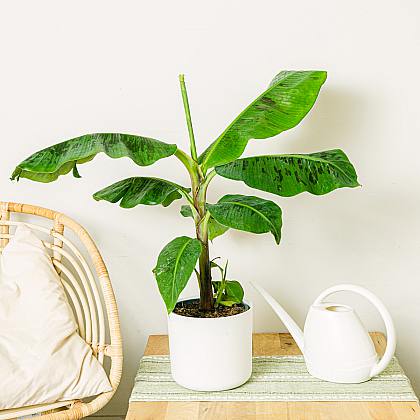Discover the Ultimate Herbal Tea Garden: A Flavorful Oasis for Health and Relaxation
Looking to unwind and relax? Step into your own backyard oasis, brimming with fragrant herbs and vibrant flavors.

Looking to unwind and relax? Step into your own backyard oasis, brimming with fragrant herbs and vibrant flavors.
With the ultimate herbal tea garden, you can create the perfect cup of tea to rejuvenate your senses. Whether you have a spacious backyard or just a few pots on your balcony, we'll guide you through selecting the best herbs based on their medicinal properties and your preferences.
From calming chamomile to invigorating peppermint, join us on this flavorful journey to health and relaxation.
Getting Started With Herbal Tea Gardens
To begin your journey into herbal tea gardening, you'll want to choose a sunny and fertile part of your garden or opt for containers, planters, or raised beds if you don't have a backyard.
Container gardening is a fantastic option for growing herbs indoors, as it allows you to have a thriving tea garden even in limited spaces. There are several benefits to growing herbs indoors.
First, it provides easy access to fresh herbs for your daily tea rituals. Second, it allows you to control the growing conditions, ensuring optimal sunlight, moisture, and temperature for your herbs. Lastly, indoor gardening can enhance the aesthetic appeal of your home, bringing nature indoors and creating a calming and relaxing atmosphere.
Growing Herbs for Tea in Any Climate
You can successfully grow herbs for tea in any climate by choosing the right herbs and providing them with the necessary growing conditions. One option for growing herbs in any climate is container gardening. This method allows you to control the growing environment and make adjustments as needed.
The benefits of growing your own herbs for tea are numerous. Not only do you have access to fresh, flavorful herbs, but you also have the satisfaction of knowing exactly where your herbs come from and how they're grown. Additionally, growing your own herbs allows you to experiment with different flavors and blends, creating unique and personalized tea combinations.
Best Herbs for Tea Garden
Now that you have learned how to successfully grow herbs for tea in any climate, let's explore the best herbs to include in your tea garden.
If you have limited space in an urban area, growing herbs in containers is a great option. Not only will it maximize your space, but it also adds a touch of green to your surroundings.
When it comes to choosing the herbs for your tea garden, consider their health benefits and how they can be incorporated into your daily routine.
For example, chamomile is a popular herb known for its calming and soothing properties, perfect for winding down before bed.
Peppermint is refreshing and aids digestion, while lavender promotes relaxation and reduces anxiety.
Lemon balm has a citrusy flavor and helps with anxiety and stress.
Lastly, spearmint is sweet and refreshing, great for relieving nausea.
Variety of Plants for Herb Garden
When considering the plants for your herb garden, it's important to explore the variety of options available to enhance your tea experience. There are endless possibilities for your tea garden, as herbs can be added to herbal tea blends or used individually.
Growing a tea garden not only allows you to customize your tea blends, but it also offers a wide range of choices for teatime. Each herb has its own unique growth requirements, so you can choose herbs that thrive in your specific climate and garden conditions.
Chamomile: Calming and Soothing
As you explore the variety of plants for your herb garden, it's important to delve into the calming and soothing properties of chamomile. Chamomile is a popular herb for tea that offers numerous medicinal benefits.
There are different varieties of chamomile, including German chamomile and Roman chamomile, each with their own unique properties. German chamomile is known for its anti-inflammatory and sedative effects, while Roman chamomile is prized for its calming and digestive properties.
To harvest and dry chamomile for tea, simply pick the flowers when they're fully open and dry them in a well-ventilated area. Once dry, store the chamomile flowers in an airtight container away from sunlight.
Brewing chamomile tea is as simple as adding hot water to a tablespoon of dried flowers and letting it steep for a few minutes. Enjoy the calming and soothing benefits of chamomile tea as you relax and unwind.
Peppermint: Refreshing and Invigorating
Continue to explore the variety of plants for your herb garden with the refreshing and invigorating properties of peppermint. Peppermint isn't only a delicious addition to your tea blends, but it also offers numerous health benefits.
Here are some key reasons why peppermint should be a staple in your herb garden:
Soothes the stomach and aids digestion: Peppermint has long been used to relieve stomach discomfort and promote healthy digestion. It can help ease indigestion, bloating, and gas.
Natural remedy for headaches and migraines: The cooling effect of peppermint can provide relief from headaches and migraines. Applying peppermint essential oil to your temples or inhaling its aroma can help alleviate pain.
Thrives in full sun or partial shade: Peppermint is a resilient herb that can adapt to various growing conditions. It prefers full sun or partial shade and well-drained soil.
Easy to grow and maintain: Peppermint is a vigorous plant that spreads quickly, making it an ideal choice for your herb garden. It requires regular watering and occasional pruning to keep it in check.
With its refreshing flavor and numerous health benefits, peppermint is a must-have herb for any tea garden.
In conclusion, creating your own herbal tea garden is a wonderful way to indulge in the flavors and health benefits of aromatic herbs.
Whether you have a small balcony or a spacious backyard, you can cultivate a variety of herbs like chamomile and peppermint to craft a refreshing and rejuvenating cup of tea.
Embrace the journey of growing and harvesting these herbs, and create your own flavorful oasis for health and relaxation.
Cheers to the wonders of an herbal tea garden!


